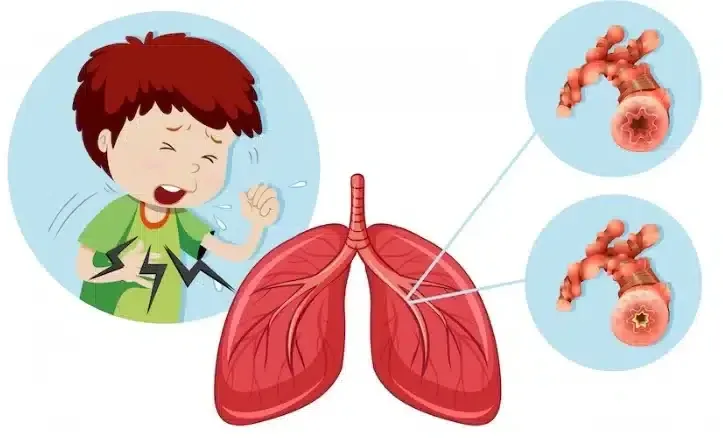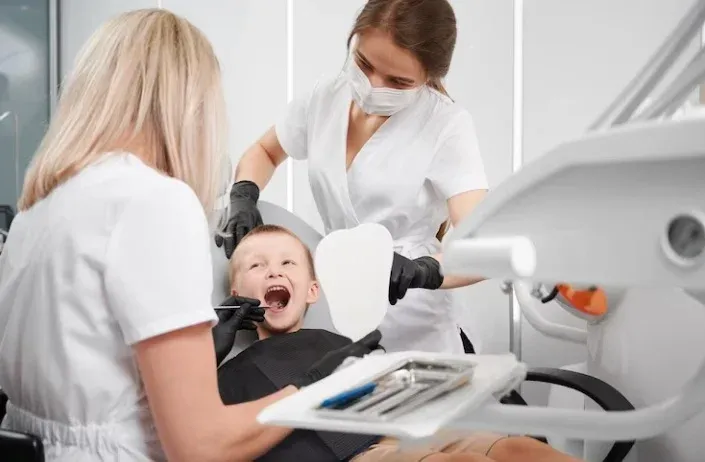What Does Lung Cancer Breath Smell Like? Types of Bad Breath Smells
The sense of smell is a powerful tool for detecting various health conditions, including cancer and…
The sense of smell is a powerful tool for detecting various health conditions, including cancer and other medical conditions. Researchers are increasingly studying breath analysis and breath samples to understand how changes in breath odor and volatile organic compounds (VOCs) may signal underlying health problems. While lung cancer itself may not have a specific odor, changes in a person’s breath can sometimes provide subtle clues about their oral health or overall respiratory health. In this comprehensive guide, we will explore the connection between lung cancer and breath smell. We will cover the following subheadings to provide valuable insights into this complex topic:
What Does Lung Cancer Breath Smell Like?
Lung cancer breath does not have a distinct or easily identifiable smell on its own. Unlike some other health conditions where breath odor is a prominent symptom, lung cancer is primarily characterized by respiratory and systemic effects rather than a unique cancer breath smell.
However, it’s essential to understand that certain changes in breath and odor can be indirectly linked to lung cancer, especially in advanced stages. These changes may be detected through breath analysis technologies, such as an electronic nose, which can identify specific VOCs in exhaled air that are sometimes associated with diagnosing lung cancer.
The Smell of Lung Cancer Breath:
The smell of lung cancer breath is not uniform and can vary from person to person. In cases where lung cancer is advanced or involves other organs, metabolic changes can occur that affect the breath. These breath odors are caused by changes in how cancer cells break down nutrients.
Some reported breath smells may be sweet, fruity, ketone-like, or acetone-like. These odors are not exclusive to lung cancer and may occur in other types of cancer, diabetes, or medical conditions involving altered metabolism.
It’s important to note that many people with lung cancer will never notice changes in breath odor, and common issues like dry mouth, oral hygiene habits, or dental disease are far more likely explanations.
Can Lung Cancer Cause Bad Breath?
Yes, lung cancer can potentially cause bad breath, also known as halitosis, but it is not a common or early sign. Bad breath is much more often linked to dental problems, gum disease, poor oral hygiene, dry mouth, or gastrointestinal issues such as gastroesophageal reflux disease.
In advanced cancer, particularly if the disease affects the liver or causes infections in the respiratory tract, changes in breath odor may occur. This foul odor may be due to bacteria, tissue breakdown, or systemic illness rather than the lung cancer itself.
How to Tell If Your Bad Breath Is a Sign of Lung Cancer:
While bad breath can be concerning, it’s important not to assume it indicates lung cancer. Breath could change for many benign reasons. To assess whether your breath may be related to a serious health condition, consider the following:
1. Evaluate Other Symptoms:
Pay attention to symptoms such as persistent coughing, coughing up blood, chest pain, unexplained weight loss, shortness of breath, or fatigue. These are more relevant indicators when diagnosing lung cancer than breath smell alone.
2. Visit a Healthcare Professional:
Start with a dentist to rule out dental hygiene issues, tooth decay, gum disease, or infections. If oral health causes are excluded, a physician can evaluate respiratory or systemic causes.
3. Undergo Diagnostic Testing:
Your healthcare provider may order imaging, blood tests, or advanced breath analysis to detect VOC patterns associated with lung cancer or other health problems.
4. Receive a Diagnosis:
If a medical condition is identified, appropriate treatment can be started. Early diagnosis improves outcomes for most types of cancer and other serious illnesses.
Other Causes of Bad Breath:
Most cases of bad breath are unrelated to lung cancer. Common causes include:
1. Poor Oral Hygiene:
Failing to brush your teeth, floss, and clean the tongue allows bacteria and sulfur compounds to accumulate, leading to foul breath and morning breath.
Using a tongue scraper daily can significantly reduce odor-causing bacteria. A simple tool like a stainless steel tongue scraper is an effective addition to brushing your teeth and improving dental hygiene.
2. Dental Issues:
Tooth decay, abscesses, and gum disease are leading causes of chronic halitosis and should be treated promptly by a dentist.
3. Dry Mouth (Xerostomia):
Reduced saliva allows odor-causing bacteria to thrive. Dry mouth may be caused by medications, dehydration, or certain health conditions.
4. Dietary Habits:
Foods like garlic, onions, coffee, and alcohol can temporarily affect breath smell.
5. Smoking and Tobacco Use:
Smoking contributes to foul breath, gum disease, dry mouth, and increased cancer risk.
6. Infections and Medical Conditions:
Respiratory infections, sinusitis, diabetes, and gastrointestinal disorders can all cause persistent bad breath.
7. Medications:
Some medications cause dry mouth or release chemicals that contribute to breath odor.
When to See a Doctor About Bad Breath:
Seek medical care if bad breath persists despite good oral hygiene or is accompanied by:
- Unexplained Weight Loss: May signal serious underlying health problems.
- Persistent Cough: Especially if it lasts more than a few weeks.
- Blood in Sputum: Requires immediate evaluation.
- Chest Pain: Especially with breathing or coughing.
- General Health Changes: Fatigue, weakness, or worsening respiratory symptoms.
In summary, lung cancer does not usually have a specific breath smell. While breath odor changes may occur in advanced cancer, most cases of bad breath are related to oral health, dental hygiene, or other non-cancerous medical conditions. Maintaining good oral hygiene, addressing dental issues early, and consulting a healthcare professional when symptoms persist are the best steps for protecting your health.







